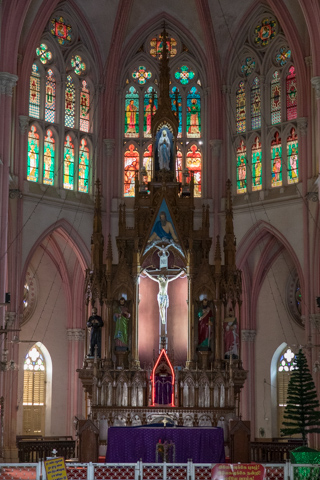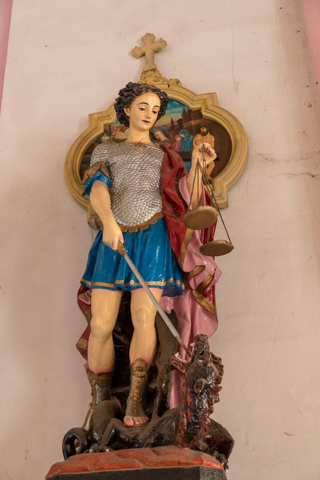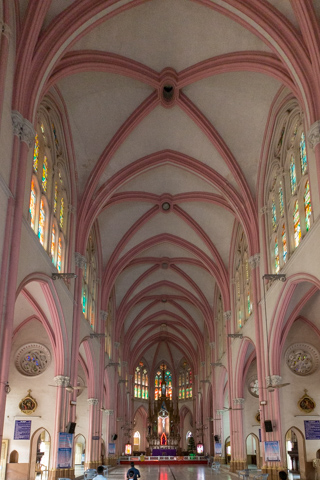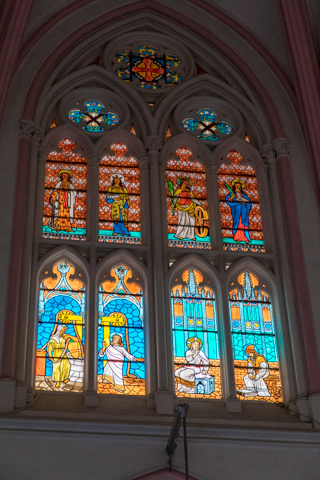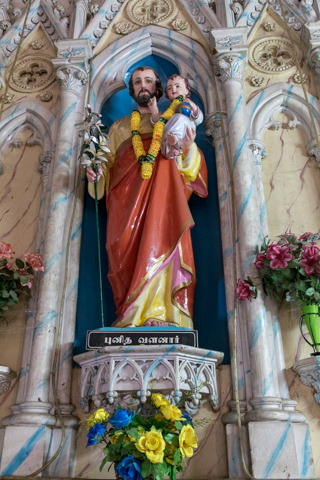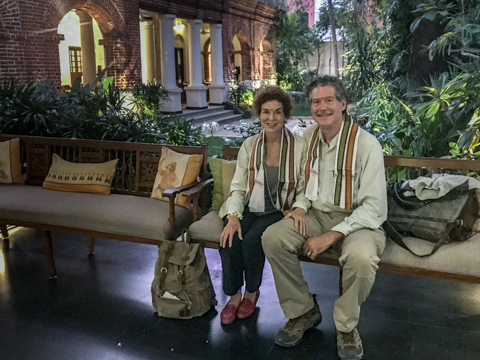Tuesday, December 18, 2018 -
This morning we stop at the Thirupparamkunram Murugan Temple.
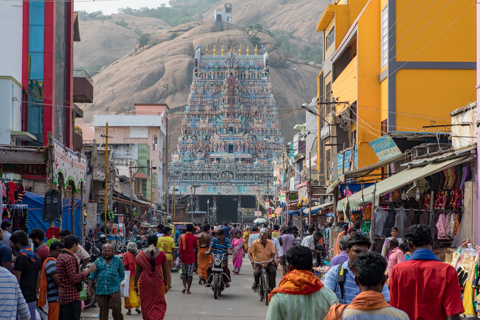
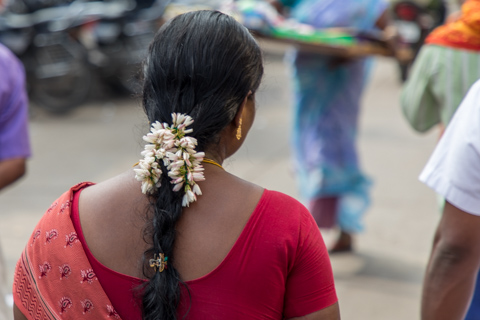
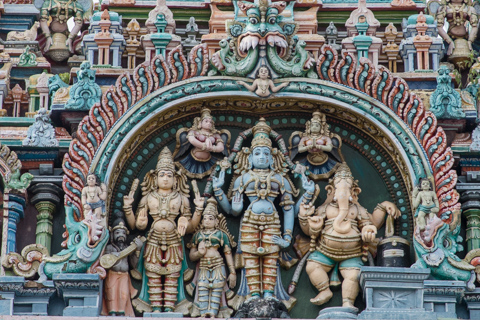
This temple, being carved out of a hill, was most probably earlier a Jain cave.
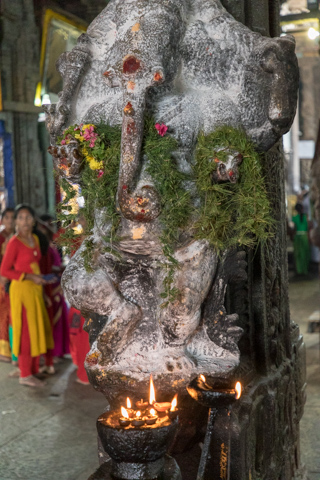
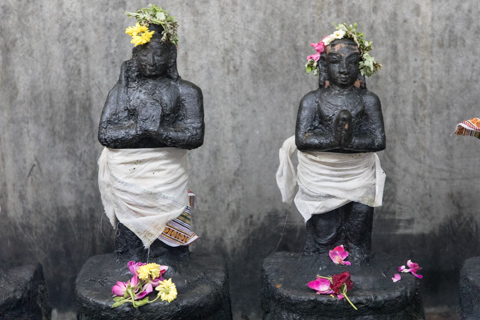
However, in a room were several (50ish) of these figurines which I was able to photograph.
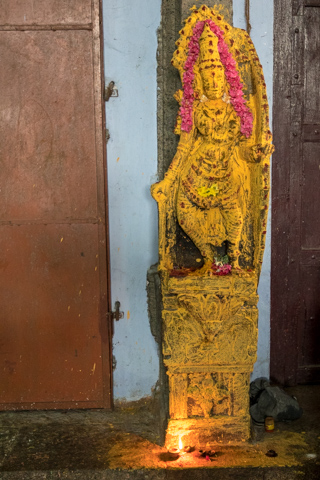
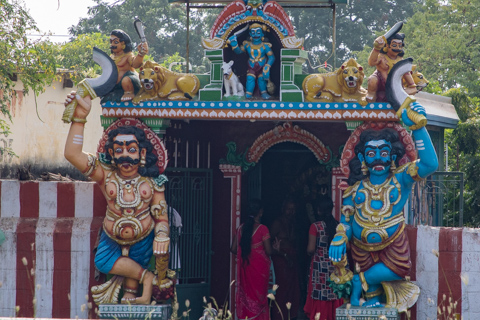

This guy was out front trying to get business before you even entered the flower market.
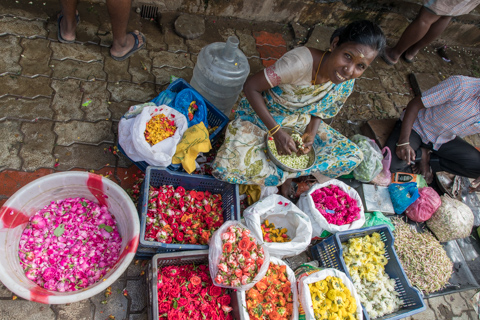
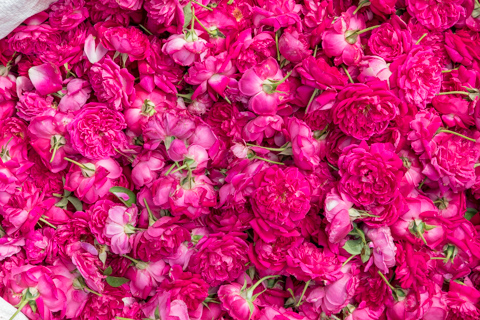
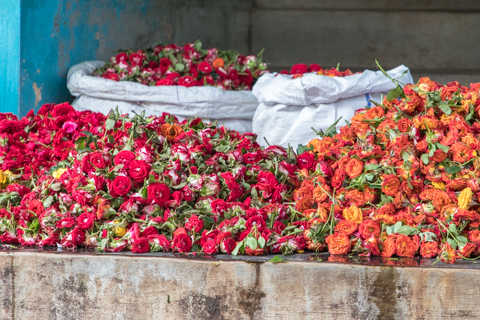
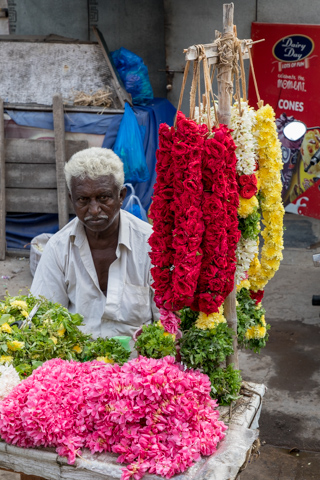
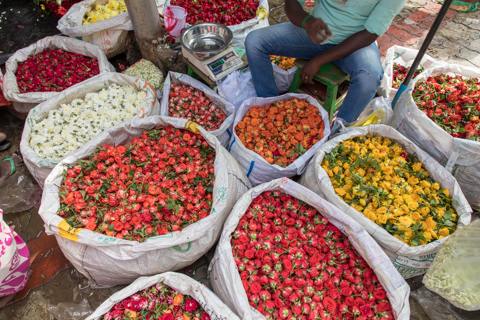
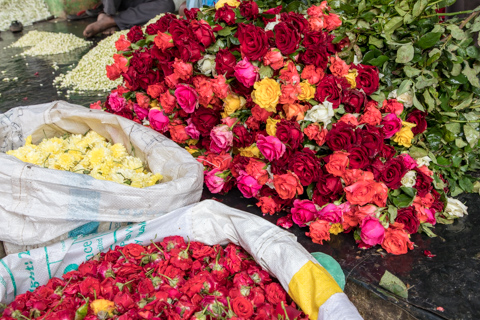
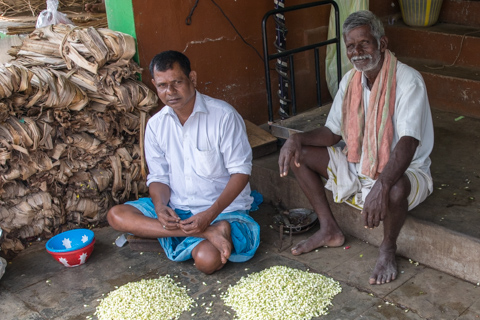
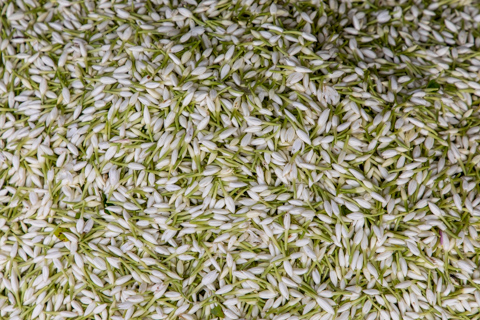
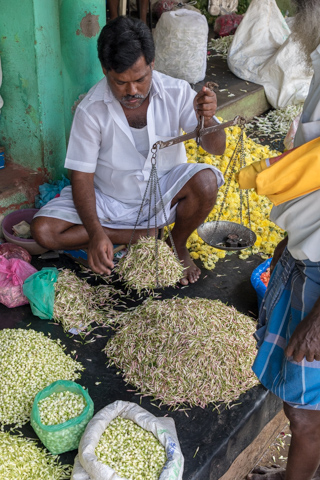
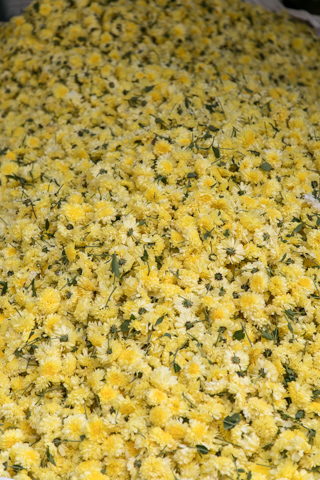
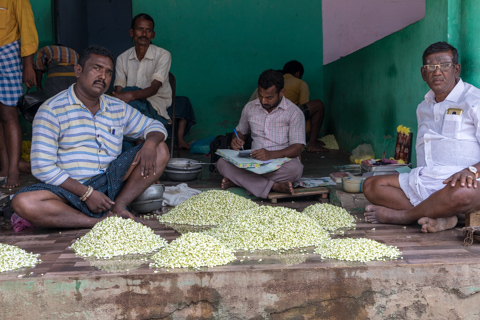
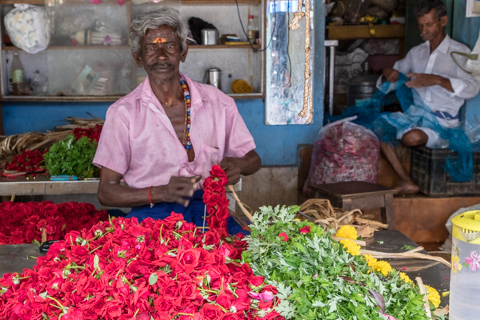
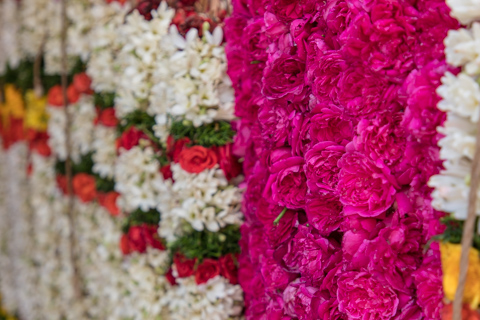
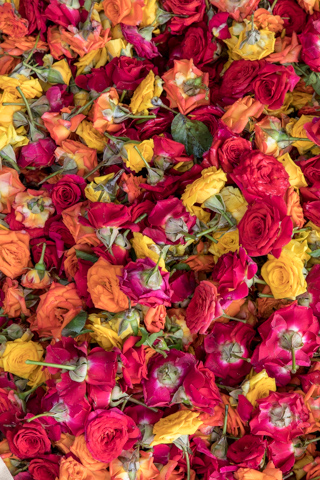
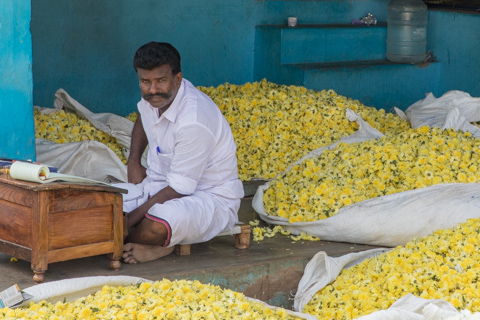
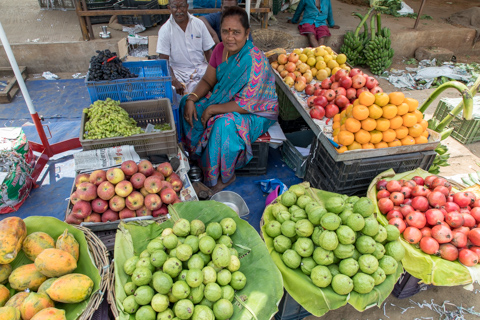
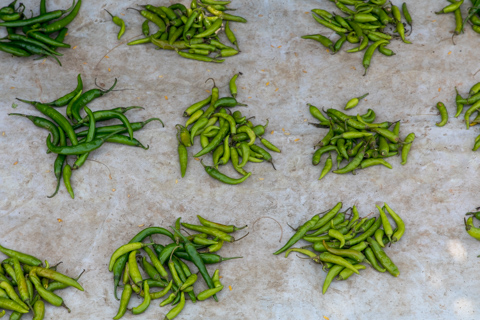
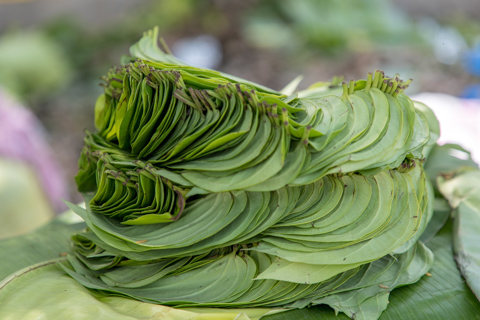
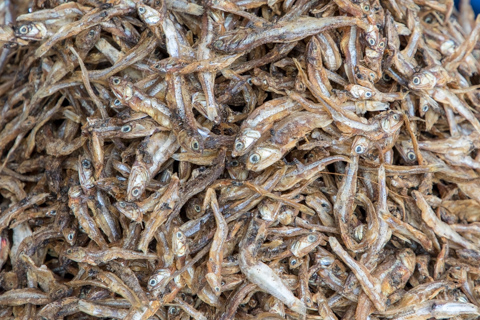
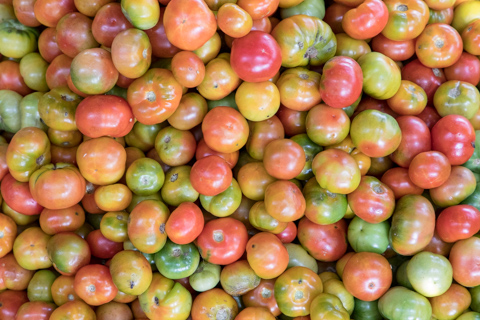
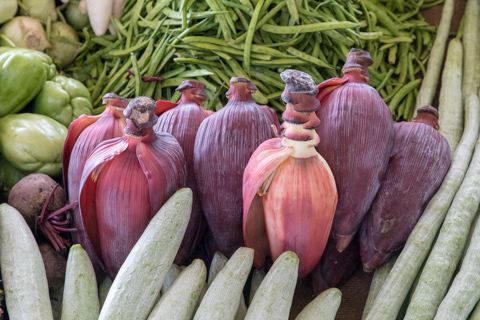
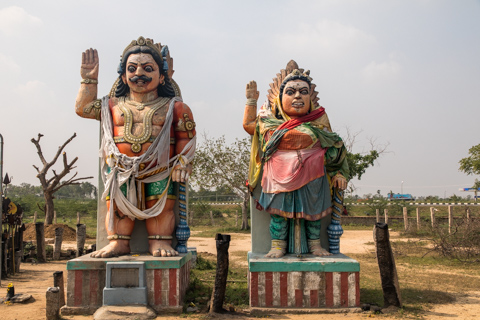
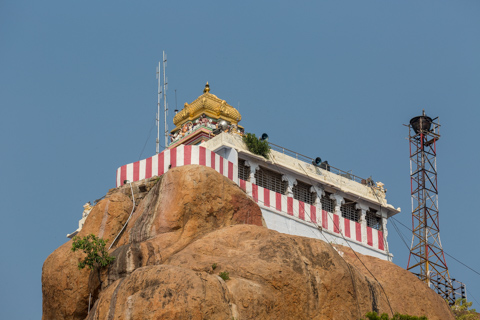
The Rock Fort Mountain, is a landmark of Trichy and in the 17th Century, the British used the fort in a battle with India.
Thayumanavar Sivan Temple way up on the top of a large rock. There are several hundred steps to the top that we did not climb.
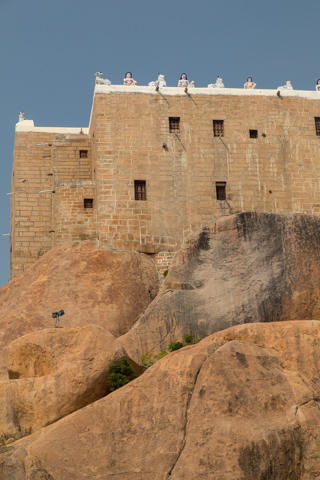
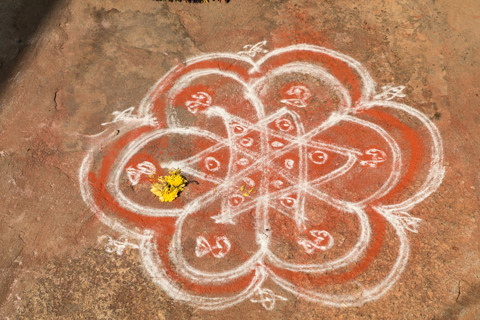

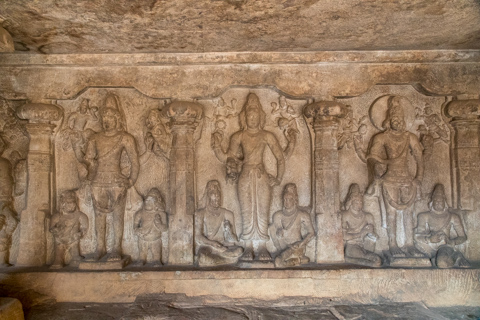
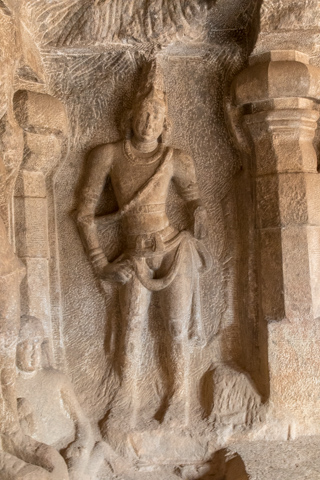
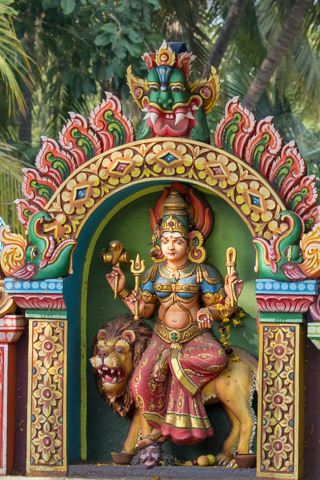
On the foreheads of many people we saw either three horizontal lines or three vertical lines painted on their forehead. The horizontal are Siva worshipers and the vertical are Vishnu worshipers.
As we travel from city to city and tour many, many temples, our guides give us insights into the core beliefs and principles indicative of these religions.
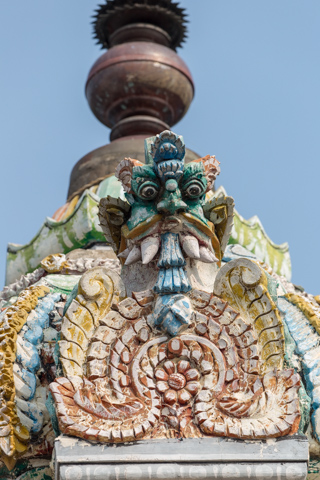
When we visited Amma Mandapam, we learn that some Hindu beliefs appear to have superstitious connections. Most of the beliefs appear to provide protection from evil spirits, and some are based on scientific reasoning.
As an example, the number 9 is considered a lucky number and relates to the number of planets, nine, and that Vishnu had nine incarnations. Hindus believe that out of the 24 hours in a day, there are hours considered good in which to do work or make plans and there are hours considered bad in which you refrain from doing certain things.

The yellow strings tied to this palm tree are prayers for good wishes in a marriage.
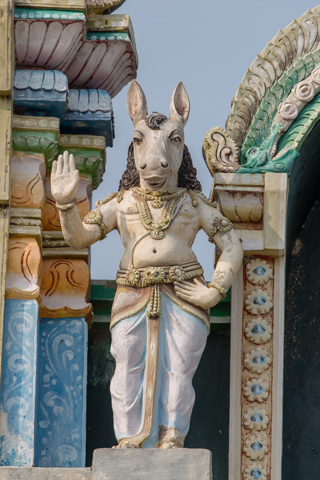
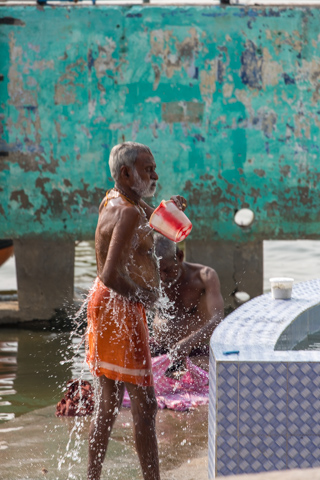
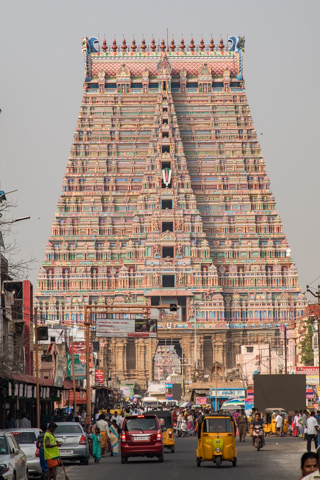
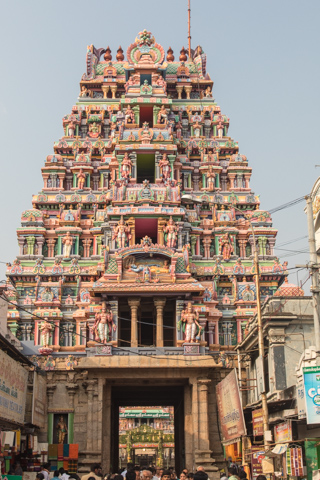
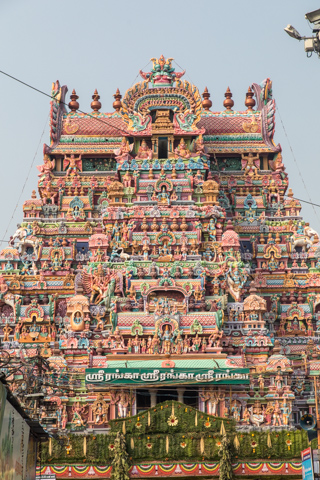
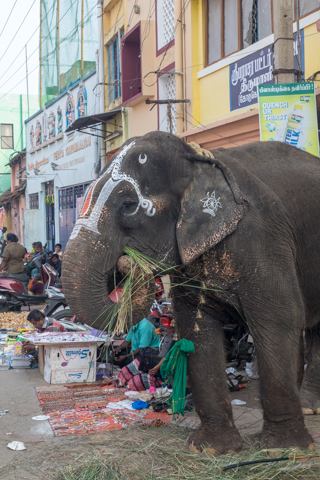
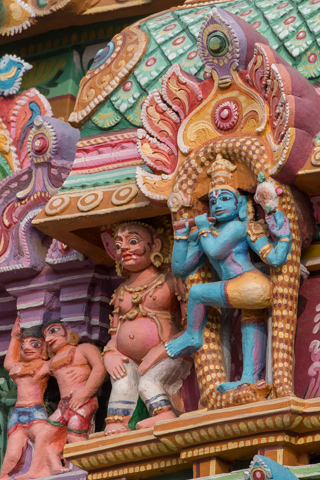
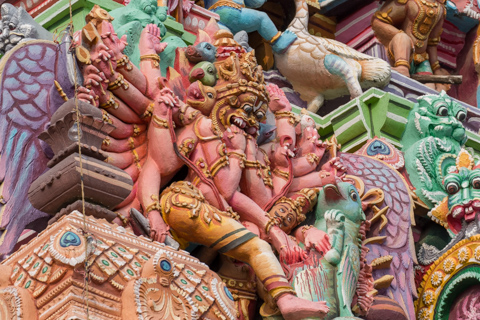
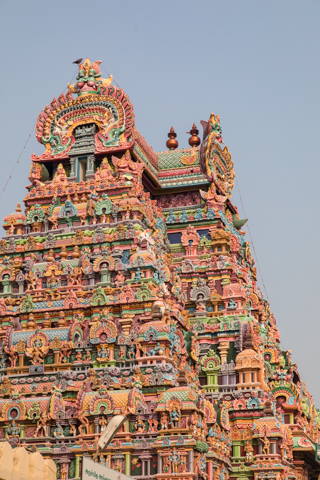
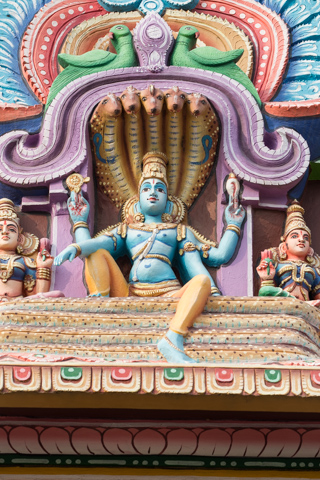
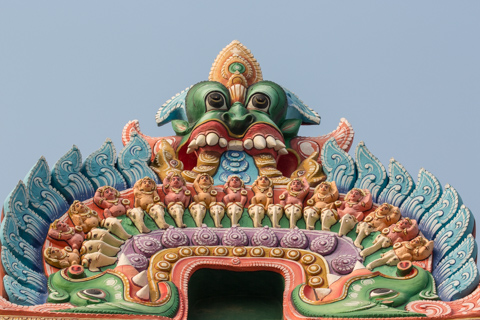
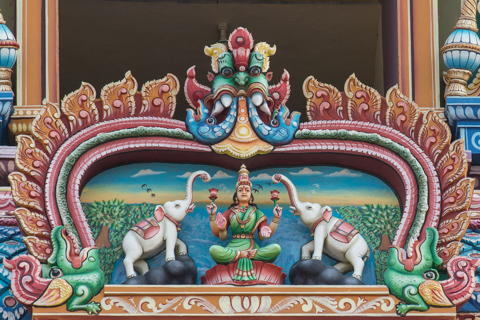
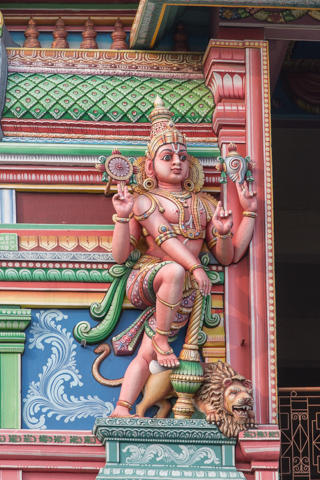
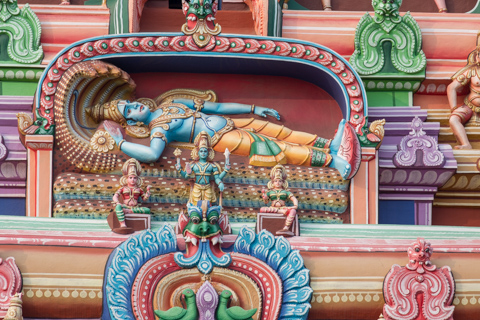
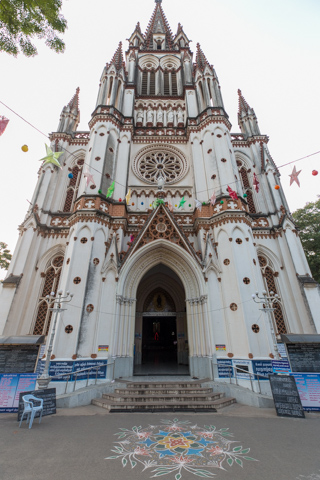
A beautiful chalk drawing adorned the sidewalk at the entrance to the Church.
